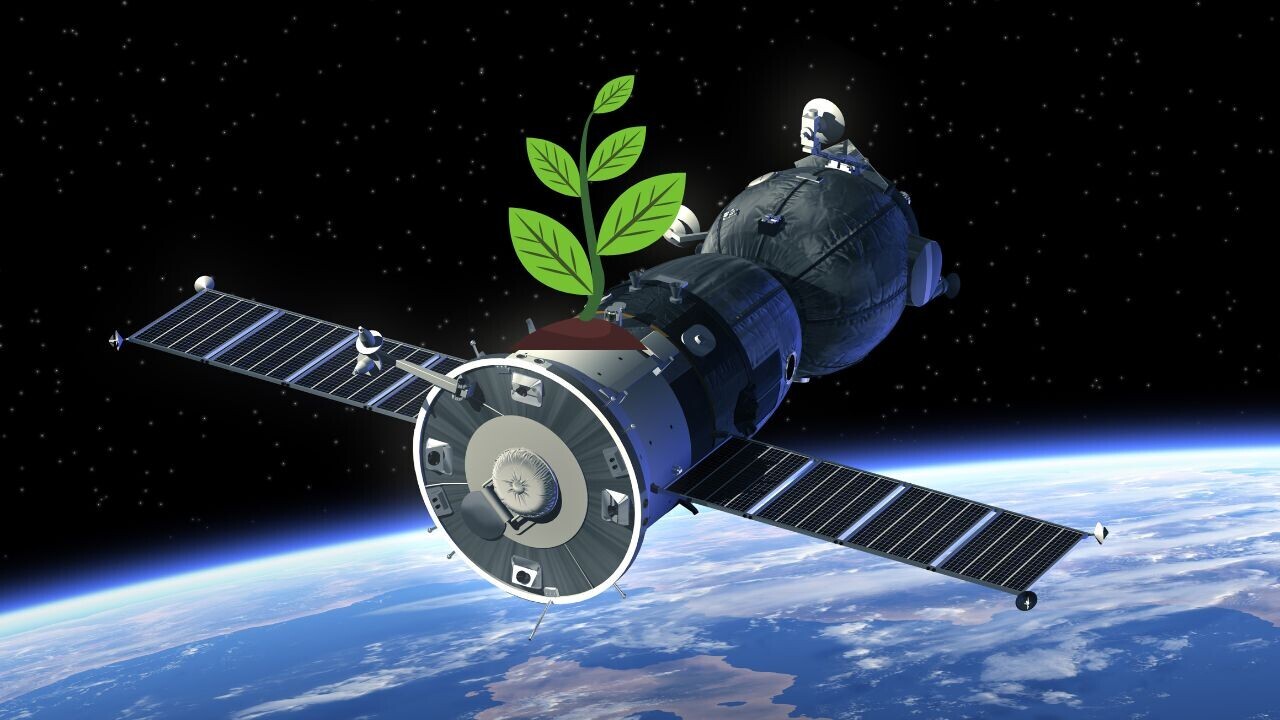
A vertical farming startup from the UK is taking its technology to new heights.
The UK Space Agency has awarded Vertical Future £1.5mn to build an autonomous farm in orbit. The high-tech veggie garden will be installed on the world’s first commercial space station.
Currently being constructed by US-based Axiom Space, the station is due to open its doors to eager astronauts in 2026.
Space stations are an ideal testing ground for growing fruit, veggies, and even pharmaceuticals in microgravity. The lessons learnt here will likely be critical to feeding hungry humans once (if?) we set up shop on the Moon or Mars.
“The further we go into space, the more we will need to produce while we’re there, be it food, biomaterials, or medicines,” Dr Jen Bromley, chief scientific officer at Vertical Future, told TNW. “Plant-growing facilities are seen as a part of the solution.”
Headquartered in London, Vertical Future designs, manufactures, and deploys fully-robotic vertical farms. The plants are grown under LED lights in metal boxes stacked on a shelving system towering several metres high.
Robots — capable of moving up and down and left to right — keep the crops healthy. Everything from seed treatment to harvesting is fully automated.
Adapting the farms for space
In space, Vertical Future’s system will need to overcome a whole new set of challenges. “The main issue is watering and feeding [the plants],” said Bromley. “In microgravity, any fluid movement needs to be carefully controlled as water doesn’t pool the same way it does on Earth.”
Vertical Future is exploring using a kind of “pillow” that will safely contain the liquid for use by the plants. This builds upon previous research at NASA where astronauts manually injected the pillows with fertirrigant (fertiliser mixed with water). The startup will now work on automating the process.

Astronauts have been experimenting with growing plants in space for decades, although these efforts have remained small-scale. Right now on the international space station (ISS), the crew receive regular shipments of freeze-dried meals to cover their dietary needs.
But when astronauts venture further into space — travelling for months or years — the vitamins in prepackaged foods will break down, presenting a problem for their health. Freshly grown fresh fruits and vegetables are the only viable solution.
“Plants are not just important for astronaut nutrition, there is a proven psychological benefit to eating fresh produce,” Bromley points out. “The experience of texture and flavours from fresh food cannot be underestimated for astronaut well-being. As we travel further and spend longer in space that is critical.”
Vertical Future will build the first space farm prototype this year. It plans to test the system at the ISS next year prior to deployment at the new commercial space station the year after.
Making vertical farming work on Earth
Vertical farming was all the rage a few years back. Startups promised a future where food could be produced locally and more sustainably. Investors rushed in to take their slice of the plant-based pie.
Last year, however, investment in vertical farming was a fraction of what it was just three years prior: €100mn, compared to over €500mn back in 2020, according to Pitchbook data.
While vertical farms are admittedly a great idea, the costs in both money and energy are still high compared to traditional agriculture. For this reason, even today only a tiny fraction of the foods you eat daily are grown in vertical farms.
Vertical Future used to just grow crops and sell them to restaurants and supermarkets but it wasn’t profitable so they pivoted. Now, the company focuses on selling the growing towers. Anyone from supermarkets to pharmaceutical companies can buy them.
The company believes the outcome of its space-farm mission will provide valuable lessons for growing crops back on Earth. From footwear and the computer mouse to smoke detectors and even treatments for cancer, experiments in space have long proven that solving problems can sometimes benefit from a bit of — pun intended — rocket science.
Get the TNW newsletter
Get the most important tech news in your inbox each week.




